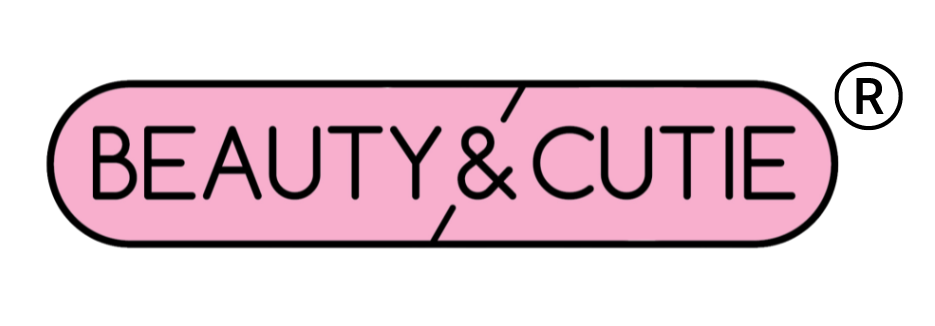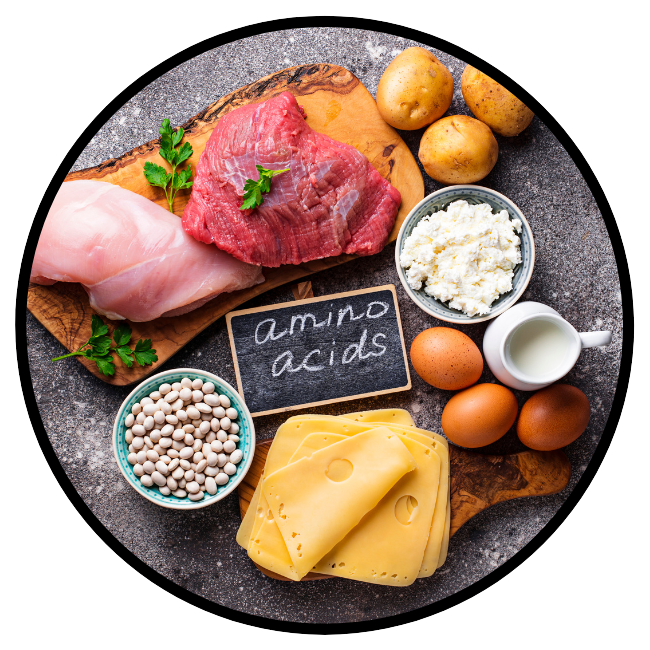
WHAT IS L-METHIONINE?
L-methionine is an essential amino acid that falls into that category of compounds that your body cannot produce by itself, so it must be obtained through diet or supplementation. But what exactly is an amino acid? Amino acids are the building blocks of proteins. There are 20 different amino acids that are incorporated into proteins in different ways, with each different configuration giving rise to a protein with different chemical properties and functions. Just as changing the sequence of a group of letters can create words with different meanings, changing the sequence of amino acids in a protein molecule can change its properties and function. All of these 20 amino acids consist mainly of hydrogen, carbon, nitrogen, and carbon atoms. But methionine is a bit different – it also contains an S atom and is only one of two amino acids that contain this element. It is quite unique in this regard.
If our body cannot produce it, what foods will provide it? The following are foods that are high in methionine content:
- Meats such as turkey, beef, pork, lamb, and fish
- Eggs
- Sesame seeds
- Brazil nuts
- Parmesan cheese
Once in your body, methionine can lead to the production of many very beneficial S-containing molecules1 for your health. One of these is the other S-containing amino acid – cysteine – which has several very beneficial effects, which we will discuss in the next section.
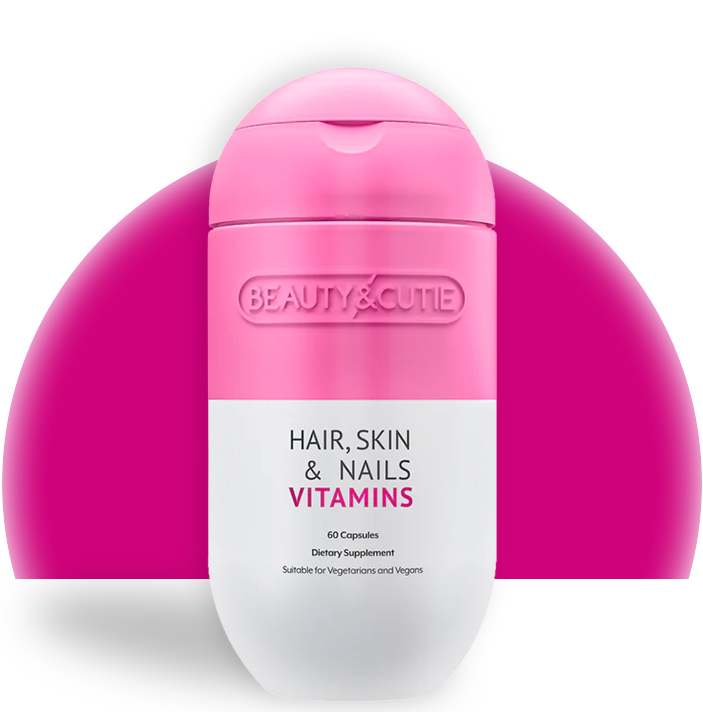
Beauty & Cutie
L-Methionine is a sulfur containing essential amino acid that is used to produce keratin
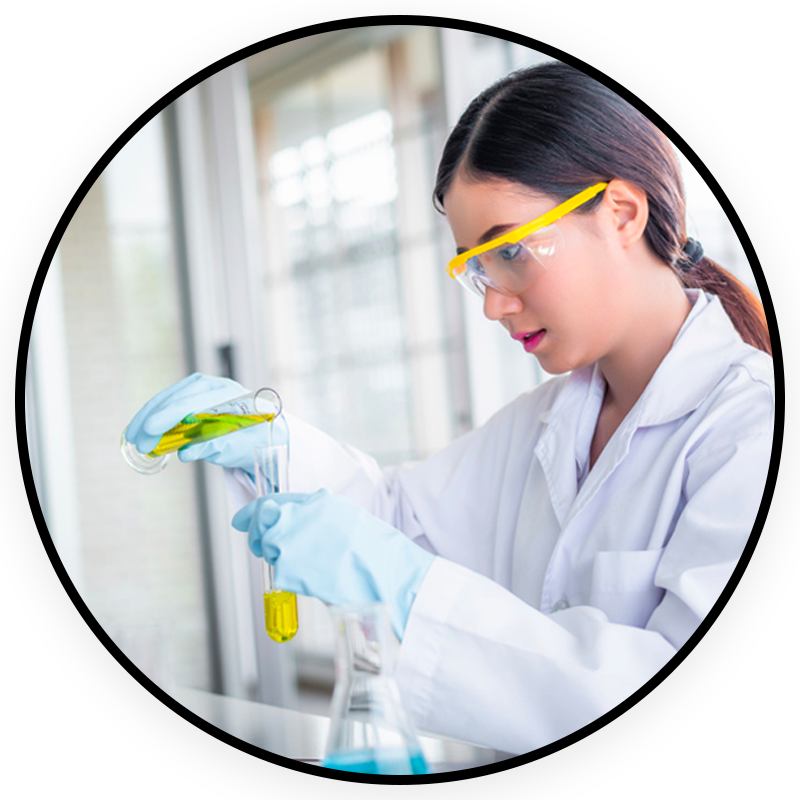
WHY IS L-METHIONINE IN MY PRODUCT?
You could envision methionine as being at the top of a pyramid of health benefits, because our body cannot produce it naturally and must be acquired through diet or supplementation. Methionine leads to the generation of the amino acid cysteine, which can, in turn, lead to the production of other proteins and a very important molecule called glutathione. Glutathione is a powerful antioxidant2 able to combat the harmful effects of reactive oxygen species and oxidative stress. It also plays important roles in3:
- DNA and protein production
- Cell proliferation
- Immunity
- Nutrient metabolism
A body deficient in glutathione is more prone to:
- Signs of aging
- Alzheimer’s and Parkinson’s disease
- Liver disease
- HIV/AIDS
- Stroke
And it has also been linked to poorer outcomes4 for those that have contracted the COVID virus.
Methionine also leads to the production of taurine, a compound that plays an important role5 in maintaining cellular health throughout the central nervous system, heart, muscles, and within your eyes. And as if that was not enough, methionine is also key in producing yet another compound significant to your health: S-Adenosyl-L-methionine (SAMe). A number of clinical trials have shown its effectiveness6 in treating depression, dementia, and liver disease.
With all these facts in mind, the benefit of methionine for your health is not so much directly related to the compound itself, but the chain reaction of other molecules it produces when it is ingested and metabolized in your body.
WHAT IS THE ROLE OF L-METHIONINE FOR HAIR, SKIN AND NAILS?
To answer this question, we need to take a step back and define a term that you have probably heard of or read on the labels of various cosmetic products – keratin. Keratin is a protein whose shape mimics a bundle intermingled thread that gives it strength when pulled. It is essential for maintaining the mechanical integrity of skin cells located in the outermost part of our skin. These cells are called keratinocytes. Nice tightly packed cells give rise to smooth skin and prevent absorption of potentially toxic agents (e.g., bacteria, fungi) or loss of desirable elements (moisture). Cysteine is crucial for the production of keratin, as the mechanical strength of keratin is provided by strong bonds between the S atoms linking two oxidized cysteine molecules. And as we know, cysteine is one of the important by-products of methionine.
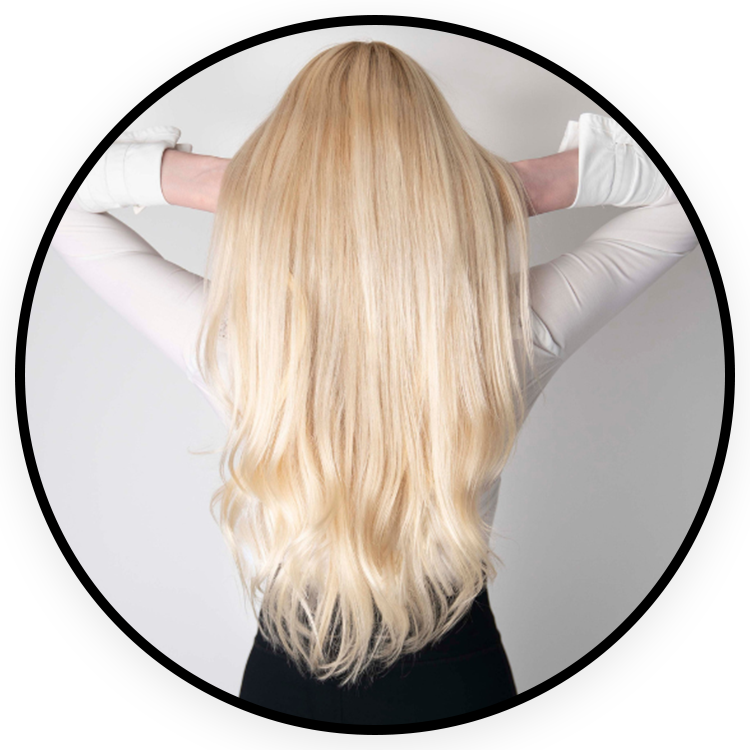
Cysteine is found in keratin, which is a large component of your hair, skin, and nails7. Therefore, cysteine and its precursor methionine are an important part of its health. It is especially important in providing your hair with mechanical strength8.
Another benefit of methionine pertains to melanin production. Melanin is a color pigment that is produced by melanocyte cells and stored in cellular compartments called melanosomes. Not only is melanin a key factor in skin color, but it is an important defense our body deploys against the harmful effects of UV radiation9. The UV radiation of sunlight can promote melanin production, which is what happens when you get a suntan. However, we must be careful not to overdo it as a by-product of melanin production are ROS10, which have led some to call melanin a double-edged sword11. If our bodies generate too much melanin, this can result in:
- Freckles,
- Age spots
- Skin cancer
We already know that antioxidants fight the damaging effects of an overabundance of ROS. Methionine itself has been shown to contain antioxidant properties12, but as we have discussed, its by-product glutathione is a powerful antioxidant and can help reduce freckles and spots13 generated by overexposure to UV radiation, and possibly even wrinkles14.
These damaging effects of ROS on our skin can also affect our hair follicles and lead to premature greying15. Greying hairs were found to contain hallmarks of oxidative stress (high peroxide levels) but an absence of methionine-based repair compounds, suggesting another benefit of methionine supplementation16.
References:
- https://pubmed.ncbi.nlm.nih.gov/16702333/
- https://www.ncbi.nlm.nih.gov/pmc/articles/PMC4630702/
- https://pubmed.ncbi.nlm.nih.gov/14988435/
- https://pubs.acs.org/doi/10.1021/acsinfecdis.0c00288
- https://www.ncbi.nlm.nih.gov/pmc/articles/PMC3501277/
- https://pubmed.ncbi.nlm.nih.gov/12418493/
- https://www.sciencedirect.com/topics/chemistry/cysteine
- https://pubmed.ncbi.nlm.nih.gov/29285991/
- https://pubmed.ncbi.nlm.nih.gov/18435612/
- https://www.ncbi.nlm.nih.gov/pmc/articles/PMC6842793/
- https://pubmed.ncbi.nlm.nih.gov/9266603/
- https://pubmed.ncbi.nlm.nih.gov/2285015/
- https://pubmed.ncbi.nlm.nih.gov/33871027/
- https://pubmed.ncbi.nlm.nih.gov/28490897/
- https://pubmed.ncbi.nlm.nih.gov/24033376/
- https://pubmed.ncbi.nlm.nih.gov/19237503/
